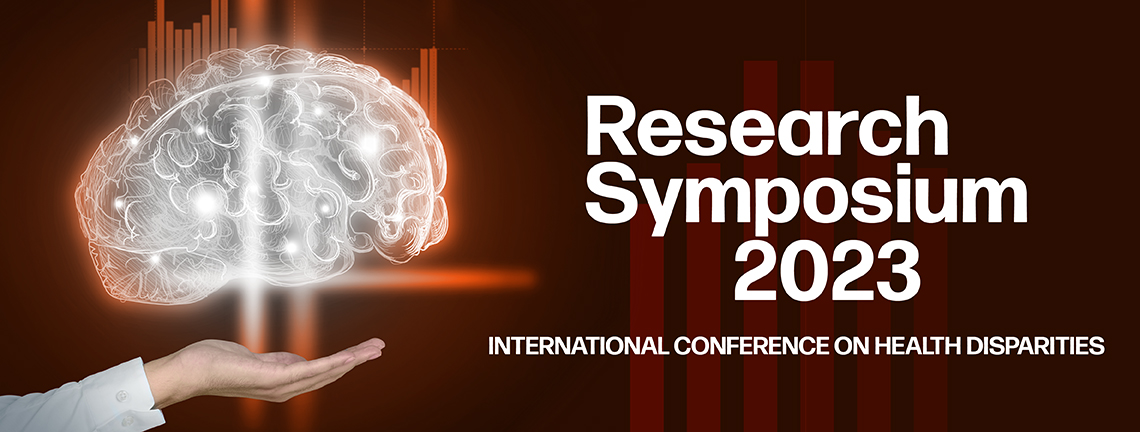
Posters
Presenting Author Academic/Professional Position
Medical Student
Academic Level (Author 1)
Faculty
Discipline/Specialty (Author 1)
Medical Education
Academic Level (Author 2)
Medical Student
Academic Level (Author 3)
Medical Student
Presentation Type
Poster
Discipline Track
Biomedical Science
Abstract Type
Research/Clinical
Abstract
Background. Reactive oxygen species (ROS) have a double role on biomedicine: they are molecular commodities in cellular biochemistry and signaling, but also corrosive threats to other cellular elements with their damaging or directly oxidizing effect. This poster seeks to discuss the relevance of ROS in different physiological processes and diseases of cardiovascular disease (including hypertension), hematological diseases related to cerebrovascular accident.
Methods. We have thoroughly studied over 60 most recent or related literature to the topic and determine important roles of ROS in various biological systems, cardiovascular and cerebrovascular diseases.
Results. ROS are fundamental for cell signaling and immune response, as well as gene expression but they can also cumulate at dangerous levels causing oxidative stress and ultimately deregulation in healthy cells. Excessive levels of oxidative stress can cause malfunctioning and disturb intracellular processes such as apoptosis, signaling, cellular proliferation. ROS play an important role in the pathogenesis of coronary heart disease via contributing to atherosclerosis, endothelial dysfunction and thrombosis. High levels of glucose further platelet-monocyte aggregates in diabetic patients, cause the risk of coronary artery disease. Execution is ROS in the pathogenesis of cerebral vascular disease (CeVD) also critical. Biomarkers of oxidative stress have been associated with the degree of CeVD, such as stroke and cognitive impairment. Moreover, other therapeutic strategies (e.g. polyphenols and ROS scavengers) could help decrease the damaging effects of ROS on patients in vascular diseases.
Conclusion. Knowledge of ROS action in biomedicine will allow the avenue for new therapies to perform redox equilibrium and reduce oxidative damage.
Recommended Citation
Zuo, Alex; Trejo, Hector; and Alanis, Anthony, "The Significance of Reactive Oxygen Species in Physiological Processes and Hematological Disorders: Insights into Cardiovascular and Cerebrovascular Diseases" (2024). Research Symposium. 61.
https://scholarworks.utrgv.edu/somrs/2023/posters/61
Included in
The Significance of Reactive Oxygen Species in Physiological Processes and Hematological Disorders: Insights into Cardiovascular and Cerebrovascular Diseases
Background. Reactive oxygen species (ROS) have a double role on biomedicine: they are molecular commodities in cellular biochemistry and signaling, but also corrosive threats to other cellular elements with their damaging or directly oxidizing effect. This poster seeks to discuss the relevance of ROS in different physiological processes and diseases of cardiovascular disease (including hypertension), hematological diseases related to cerebrovascular accident.
Methods. We have thoroughly studied over 60 most recent or related literature to the topic and determine important roles of ROS in various biological systems, cardiovascular and cerebrovascular diseases.
Results. ROS are fundamental for cell signaling and immune response, as well as gene expression but they can also cumulate at dangerous levels causing oxidative stress and ultimately deregulation in healthy cells. Excessive levels of oxidative stress can cause malfunctioning and disturb intracellular processes such as apoptosis, signaling, cellular proliferation. ROS play an important role in the pathogenesis of coronary heart disease via contributing to atherosclerosis, endothelial dysfunction and thrombosis. High levels of glucose further platelet-monocyte aggregates in diabetic patients, cause the risk of coronary artery disease. Execution is ROS in the pathogenesis of cerebral vascular disease (CeVD) also critical. Biomarkers of oxidative stress have been associated with the degree of CeVD, such as stroke and cognitive impairment. Moreover, other therapeutic strategies (e.g. polyphenols and ROS scavengers) could help decrease the damaging effects of ROS on patients in vascular diseases.
Conclusion. Knowledge of ROS action in biomedicine will allow the avenue for new therapies to perform redox equilibrium and reduce oxidative damage.

